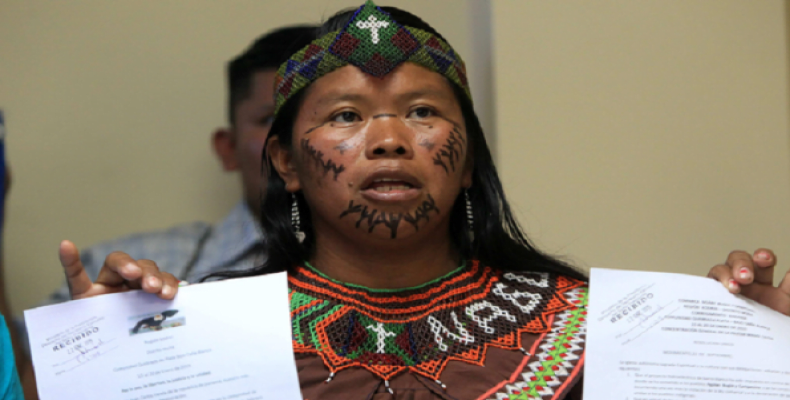Panama City, July 18 (teleSUR-RHC)-- Panama’s Indigenous Commission, a coalition of the country’s indigenous groups, refused at the last minute on Friday to start a new round of negotiations with the government over the controversy on Barro Blanco hydroelectric dam.
The movement 22 de Septiembre, part of the commission, explained it will not participate in the negotiations, claiming the government had no intention to cancel the project as demanded by indigenous groups, but only extend the situation.
Indigenous groups from Ngäbe-Buglé on Thursday condemned the increasing number of police units guarding the entrances of the site, as well as their growing presence in the neighboring Tole, Chiriqui, where negotiations were scheduled to take place.
In February 2015, Panama’s National Environmental Authority (ANAM) temporarily suspended the construction of the Barro Blanco hydroelectric dam over environmental and social concerns. On Wednesday, the government restarted the project, a minister announced to the local media, allowing the national company Generadora del Istmo (Genisa) to continue the operations while reopening negotiations with the indigenous groups who fear to lose their lands and the contamination of Tabasara River.
The decision created a confrontation between police units and indigenous protesters, as the indigenous groups were compelled to move their camp they had constructed at the entrance of Tole, where they blocked the street for 10 minutes until the police evacuated them.
“We condemn the behavior of the government of Juan Carlos Varela … which has militarized, whether in purpose or not, the region, violating the rights of indigenous peoples,” said leader of Movimiento 10 de abril Manolo Miranda.
Director of National Police Amar Pinzon replied that the officers' presence aimed to have freedoms and rights respected, the government to finish the project, and of the indigenous groups to protest. Work on the project's infrastructure was 90 percent complete in May, according to Hydroworld, and is financed by European Banks from Germany and the Netherlands, as well as the Central American Bank of Integration. It had been approved by the U.N. Clean Development Mechanism.


